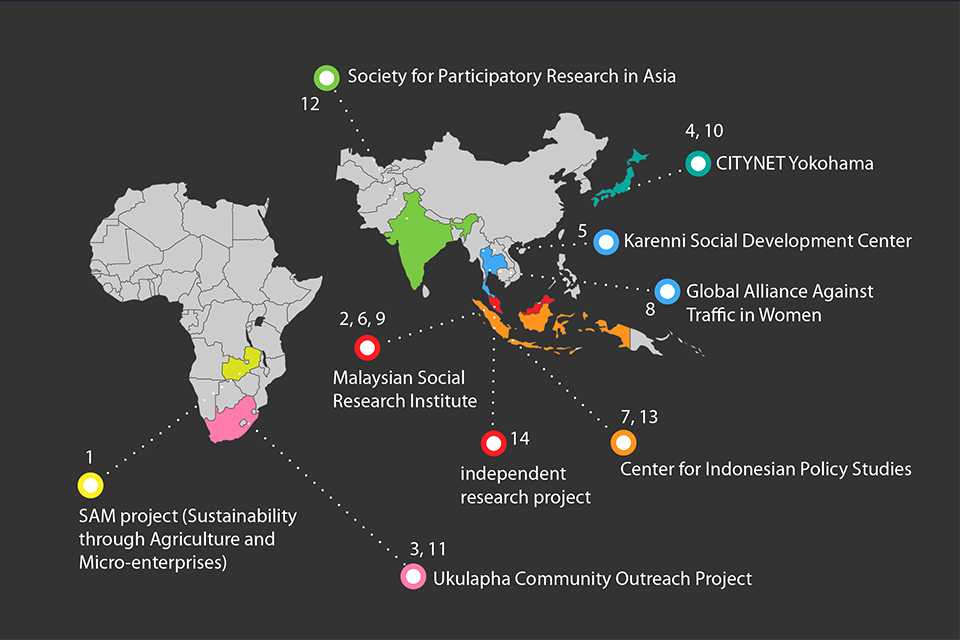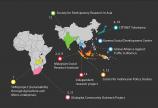The Centre for Asia-Pacific Initiatives celebrates 30 years of bridging the Pacific

The Centre for Asia-Pacific Initiatives (CAPI) at UVic recently celebrated its 30th anniversary this year. From supporting research on waste-pickers in Bangladesh, labour migration in Indonesia and coral reef recovery off Christmas Island to hosting Thai royalty and organizing international conferences, CAPI has been spelling “initiatives” in real terms for three decades. This past year also marked the 15th anniversary of CAPI’s flagship internship program.
Transnational in sweep
On a crisp night this past winter, 140 of CAPI’s closest friends gathered in Victoria for some reflection and dinner in celebration of the centre’s long history of “bridging the Pacific.”
The evening’s keynote was delivered by internationally renowned Indo-American author Amitav Ghosh, whose historical narratives as described by a UK literature council are “transnational in sweep, moving restlessly across countries, continents and oceans.”
It is a fitting description for CAPI also, which has established itself as a vital link to the Asia-Pacific region through a vast array of activities both at home and abroad.
Invaluable overseas opportunities for students
CAPI’s acclaimed internship program has sent 171 Canadian post-secondary students on life-changing placements with 51 different non-governmental organizations across the Asia-Pacific for a cumulative total of 85 years.
The centre's professional training programs have brought hundreds of Chinese post-secondary students here to Victoria for week-long leadership development sessions.
CAPI has also developed and delivered on-demand training for judges and trauma care specialists from Thailand.
Grounding international affairs at home in Canada
In a highly connected and mobile world involving complex geopolitics, CAPI increasingly hosts programming dedicated to themes of a transnational nature.
The centre hosts a continuous stream of cutting-edge thinkers and practitioners to engage with the most pressing issues in the Asia-Pacific region, including: roundtable series and discussions on migration, mobility, and displacement; Asian involvement in Africa; and Southeast Asia in a global context.
CAPI’s current “Regulating Globalization in South and Southeast Asia” project, in particular, has served as a powerful conduit for bringing people and partnerships to campus and facilitating unique overseas research experiences for early-career faculty at UVic.
This July, in the first of two planned conferences connected to the project, program participants will convene at the nascent Jigme Singye Wangchuck School of Law, the first law school in Bhutan, to present on issues of public law, legal orders and governance.
Another project—the seven-year, multi-partner, multi-million dollar Landscapes of Injustice led by project director Jordan Stanger-Ross, an associate professor in UVic’s history department—is currently housed in CAPI and is one of the biggest research projects in the field of humanities in Canada.
A testament to the region
Thirty years ago, with an eye to the future, Canada cast its gaze across the Pacific with the intention of engaging with an economically re-emerging Asia.
Here in BC, the Pacific Rim location of our university continually nurtures a profound passion for exploration. CAPI, as UVic’s longest running centre, stands as a testament to the importance of continuing to “bridge the Pacific” and to the profound impact of those who research and explore its vital significance.
Learn more
Photos




